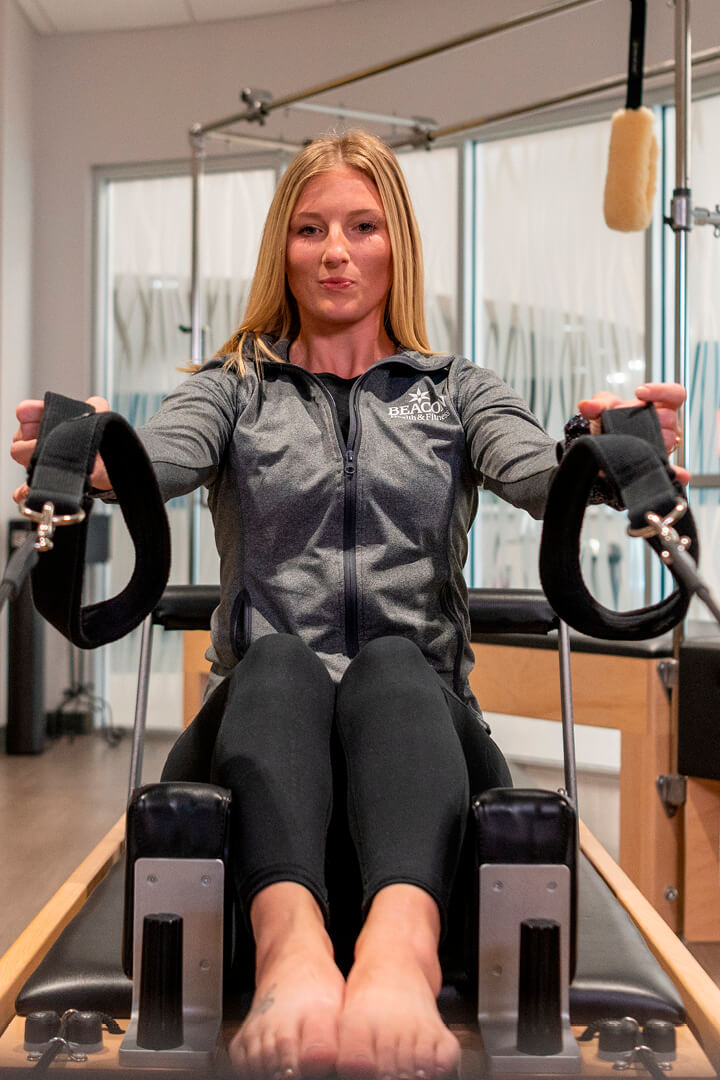By Meghan Knoff and Erica Weinandy, RD
Cholesterol is a solid, waxy substance that occurs naturally in our body. Do we need it? Absolutely! Cholesterol has various functions in our body such as supporting new cell growth and regeneration, hormone production, and helping our body digest fat. Cholesterol comes from animal products like red meat, cheese, full fat dairy, egg yolks, and shellfish. But our body also produces cholesterol. So when we combine the cholesterol we get from our diet with what our body makes, that can be harmful. How?
Too much cholesterol can accumulate in the bloodstream and cause a thickening and hardening of our arteries, which restricts blood flow. Over time, this can eventually cause a complete blockage of blood flow to many parts of the body, such as the heart. A sign of reduced blood flow to the heart is chest pain or pressure, but that is not the only symptom; there are others as well. If the blockage becomes severe enough, a heart attack can result. Being aware of your cholesterol numbers and maintaining healthy levels is extremely important in reducing risk for developing heart disease.
These are the numbers to be aware of and goals for reduced risk of heart disease:
Total Cholesterol: Less than 200 mg/dL
HDL (“healthy” cholesterol): Over 40 mg/dL
LDL (“bad” cholesterol): Less than 100 mg/dL (with no heart disease diagnosis)
Less than 70 mg/dL (with heart disease/vascular disease diagnosis)
Triglycerides: Less than 150 mg/dL
Our HDL, or “healthy cholesterol” helps keep cholesterol from building up in the blood stream, while our LDL, or “bad cholesterol” can build up along the walls of our arteries and cause blockages. Increasing your HDL and decreasing your LDL levels are extremely beneficial in maintaining sufficient arterial blood flow. How can we raise HDL levels? Exercise!
How can we lower LDL levels? Maintaining a healthy weight and avoiding foods that are high in saturated fat such as fatty/fried meats, cheese, poultry skin, bacon, sausage, whole milk, and cream. Plant-based protein such as quinoa, tofu, and beans can help lower our LDL cholesterol, so those foods can be added to or in place of some of the higher cholesterol containing ones to help lower LDL.
Diet and exercise are extremely powerful in helping improve risk factors for heart disease. For more information on a heart healthy diet, contact your Beacon Health & Fitness Registered Dietitian:
Kate Glick, RD kglick@beaconhealthsystem.org
Erica Weinandy, RD eweinandy@beaconhealthsystem.org





